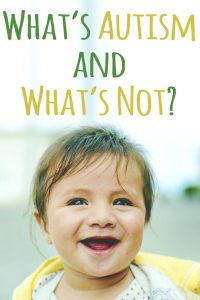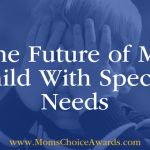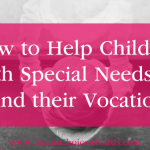 Wendy Hunter, MD
Wendy Hunter, MD
Pediatrician | Mom | Founder of BabyScience.info
Twitter | Facebook
Don’t freak out if you catch your child head-banging, echoing others words’ or hand flapping. Yes, those are symptoms of autism, but they don’t define your child as having an autism spectrum disorder (ASD). Every regular developing kid will do many of the same things that autistic kids do at some point. Many “autistic” behaviors are part of normal development and are simply stages kids go through as their nervous system wires itself for adulthood. People with autism just stick with some of these behaviors for too long or do them too often.
 Kids with ASD have a different operating system than other children. What’s even more complicated is that children with autism can be vastly different from one another, which is why its’ called a “spectrum”. But at the very heart of autism, all kids on the spectrum have a few things in common: they have abnormal social interaction and restricted, repetitive patterns of interests.
Kids with ASD have a different operating system than other children. What’s even more complicated is that children with autism can be vastly different from one another, which is why its’ called a “spectrum”. But at the very heart of autism, all kids on the spectrum have a few things in common: they have abnormal social interaction and restricted, repetitive patterns of interests.
Parents with 16-30 month old toddlers can screen for ASD using the 20-question M-Chat screening tool. If your child tests positive on this questionnaire, 95% of kids will eventually be diagnosed with some developmental disorder. However, only about 45% will actually be diagnosed with autism.
That’s because lots of other diagnoses have symptoms that look like autism, but are nothing more than a similar looking manifestation with an entirely different root cause. For example, ADHD can look like autism because ADHD symptoms include inattentiveness and impulsiveness. So if a child is inattentive to language and other social cues, they may seem to have autism. But really they have attention problems.
Getting an accurate diagnosis is essential, because the treatments are so different. Kids who have a suspected diagnosis of autism often turn out to have anxiety, a language delay, or selective mutism (the inability to speak in certain situations, but able to speak in comfortable environments).
Parents are extremely accurate when they have concerns about their child’s development. So if you are worried, your concern is probably valid. However, the issue is most likely not what you fear. So talk to your pediatrician. In the meantime, your child probably does NOT have autism if he or she:
- Looks at an object when you point at it
- Pretends to talk on the phone, or pretends to feed a doll
- Points to show you something that they want you to see also
- Smiles back when you smile at her
- Tries to copy you (claps when you clap, makes a funny noise when you make a funny noise)
- Tries to get you to watch them do something, looks at you for praise or wants your attention
- Looks at you to see your reaction if something surprising or new happens
- Follows your directions – like “put the book on the chair” or “bring me a diaper”
This post was originally posted on babyscience.info on 11/22/2016.
Save






7 Comments on “What’s Autism and What’s Not?”
good post
Thanks for reading!
My friend’s son was just diagnosed with Autism,i’m so happy i was familiar with this at least we could talk about it and reassure her.
My son was diagnosed with Autism when he was 2. They did not know how severe though it was. He has come so far since the diagnosis.
Thanks for sharing, Laurie. :)
Thank you for the info! My neighbor’s daughter is low-functioning autistic…I really didn’t have a good understanding of it prior to living here and getting to know them! People need to be educated on it for sure!
Thank you for sharing this post,i have learned so much !